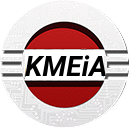Start - Teaching activities
Teaching activities
Teaching activities are conducted at the Department of Metrology, Electronics and Automation in two departments - the Department of Metrology and Automatics and the Department of Electronics. A team of 4 professors, 16 doctors of technical sciences and 10 masters of engineering conduct classes for students of the Faculty of Electrical Engineering of the Silesian University of Technology in Gliwice, and implement programs of selected subjects for students of other faculties of the Silesian University of Technology.
Lectures, exercises, laboratory and seminar classes are conducted in the following fields of study:
Electrotechnics:
- full-time two-cycle studies in Gliwice;
- full-time one-cycle studies at CKI in Rybnik;
- full-time doctoral studies in Gliwice;
- one-cycle extramural studies in Gliwice and CKI in Rybnik;
- supplementary second-cycle extramural studies in Gliwice;
- one-cycle extramural studies in Gliwice and CKI in Rybnik;
- extramural doctoral studies (3rd cycle) in Gliwice.
Electronics and telecommunication:
- full-time two-cycle studies in Gliwice;
- supplementary, second-cycle, full-time studies in Gliwice
- one-cycle extramural studies in Gliwice;
- one-cycle extramural studies in Gliwice;
- extramural doctoral studies (3rd cycle) in Gliwice.
The subject of classes conducted by the Department for students of 1st to 3rd degree studies covers six main areas:
- Metrology (classes in the field of: fundamentals of metrology, measurement theory, industrial metrology, material metrology, dynamic metrology, precision metrology), Automation and control (classes in the field of: basics of automation, programmable controllers, identification, sensorics),
- Automation and control (classes in the field of: basics of automation, programmable controllers, identification, sensorics),
- Electronics (classes in the field of: fundamentals of electronics, technology of electronic apparatus, measurements and electronic devices, electronic measurement, digital signal processing, electromagnetic compatibility),
- Digital and microprocessor technology (classes in the field of: the basics of digital technology, the basics of microprocessor technology, computer measurement systems, programming of microprocessor circuits, information systems).
- Telecommunications (classes in the basics of telecommunications, telecommunications systems and networks, IT diagnostics of wide area networks and information systems).
- Economic law and the basics of marketing..
The following teaching laboratories for technical subjects are used in the Department:
- laboratory of metrology and experimental techniques;
- measurement technique laboratory;
- electronics laboratory;
- laboratory of electronic materials science;
- laboratory of the basics of automation and control;
- operating systems laboratory;
- laboratory of digital and microprocessor technology;
- telecommunications basics laboratory;
- electromagnetic compatibility laboratory
and specialties:
- laboratory of digital programmable circuits;
- material metrology laboratory;
- laboratory of measurements in telecommunications systems;
- laboratory of computer automation and measurement systems;
- sensor laboratory;
- laboratory for starting microprocessor devices;
- information systems laboratory;
- microprocessor devices programming laboratory;
- laboratory of measurement and diagnostics of systems;
- laboratory of measurements and electronic devices;
- precision measuring laboratory;
- industrial metrology laboratory;
- laboratory of electronic measurement systems;
- laboratory of electrical measuring systems;
- programmable controllers laboratory.
The curricula implemented by the Department's employees correspond to the contemporary challenges of science and technology. Continuous modernization of laboratories enables students to learn about modern technologies currently used in industry. The curricula are complemented by trips to modern industrial plants and leading research institutes, participation in presentations of innovative technologies and apparatus, as well as professional and scientific internships in Poland and abroad. Students can deepen their interests in the field of electronics in the Science Club - Elektronik Praktyk. The Department conducts international scientific cooperation, among others from the Physikalisch Technische Bundesanstalt in Germany and the Aristotle University of Thessaloniki, Greece.









